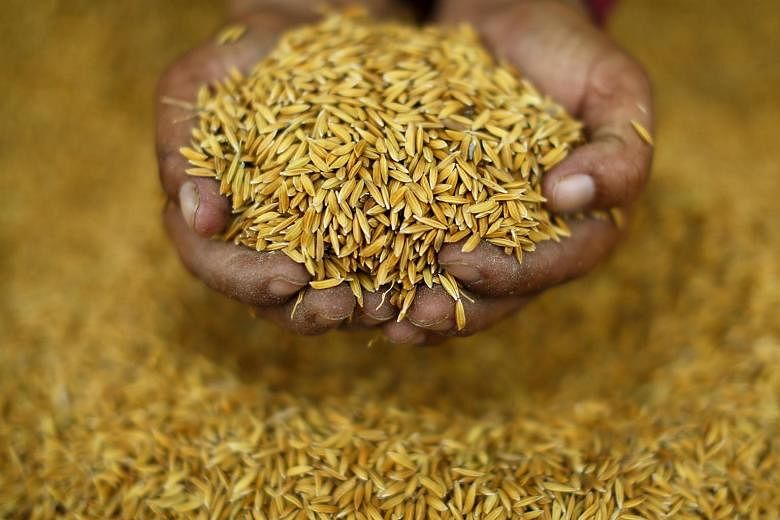Asean's packaged food and meat industries will likely benefit handsomely from the integration of the Asean Economic Community (AEC), Rabobank has said in a report.
These two industries will probably grow 5 per cent and 4 per cent a year respectively by 2020, as higher average incomes across the region will make protein diets more affordable.
This is faster than the expected global rate of growth for these two industries, of 3 per cent a year for packaged food and 2 per cent a year for meat.
Increased urbanisation in Asean, a result of a growing population that is expected to reach 670 million by 2020 from 625 million last year, will also boost demand for packaged food in the region, Rabobank said.
The AEC, to be launched later this year, will establish a single market and production base across Asean. It will minimise trade barriers to encourage the free flow of goods, services, capital, investments and skilled labour between Asean countries. This presents a huge opportunity for the region's consumer food and beverage businesses, noted Rabobank. However, Asean companies will need a regional strategy to compete against multinationals.
Only 55 per cent of regional firms have an Asean strategy, compared with 81 per cent of non-Asean companies, the bank noted.
Its director of food and agribusiness research and advisory, Mr Pawan Kumar, said: "For local food and agribusiness companies to compete with the stiff competition from multinationals, they will need to have a regional strategy, better access to funds and strong management.
"With the right strategy and support in place, this could even present an opportunity to develop the region's first home-grown multinational food and beverage companies."
However, Rabobank noted that many challenges remain. Trade in sensitive commodities such as rice and sugar remains restrictive, infrastructure remains underdeveloped, and the movement of labour remains controlled because of differences in qualifications, language proficiency, standards and implications for social infrastructures.
Indonesia, Malaysia and the Philippines, for example, have policies in place to protect their local rice and sugar industries from cheaper imports from Thailand and Vietnam, it noted.
Asean is also still struggling with common food production challenges and differences in quality between countries.
"Thailand is currently better placed than other countries, especially in the rice, sugar and animal protein sectors. As AEC integration continues... some countries will need to address issues such as non-tariff barriers to trade, effective infrastructure and agricultural skills shortages," said Mr Kumar.
"While it is understandable that countries want to protect their local industries, it could also be argued that these sensitivities should be dropped in the longer run to allow commodities to flow from the most efficient producers and reduce the overall cost in the region's supply chain."


